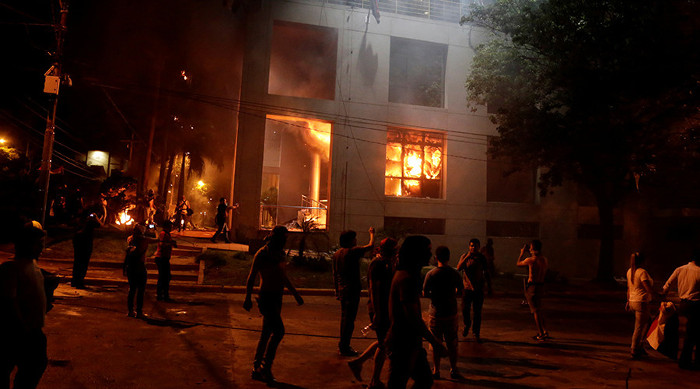China bans beards, veils | TheCable.ng
China is intensifying its crackdown against what it deems religious extremism in the far-west province of Xinjiang, which is home to 10 million Muslims.
To ensure this was achieved, authorities have ordered that people would no more wear long beards, no more wearing of veils in public places and there would be no home-schooling.
The latest measures outlined in a sweeping new anti-extremism legislation take effect Saturday and come on the heels of a series of steps to increase surveillance in the region that include the surrender of passports and mandatory GPS trackers in cars.
“They’re doubling down on security in Xinjiang,” said James Leibold, an associate professor at Australia’s Le Trobe University, whose research focuses on China’s Uyghur minority.
Advertisement
The new legislation, which was published on a regional news portal run by the provincial government, appears to standardise, and expand across the whole province, piecemeal rules and regulations that have been enacted in individual towns and cities.
Specifically, it prohibits, advocating or propagating extremist thoughts, wearing or forcing others to wear full-face coverings and hyping up religious fanaticism through growing beards or choosing names in an abnormal way
Others include not allowing children to receive state education, interfering with state education and deliberately interfering or harming the implementation of family planning policies.
Advertisement
Publishing, downloading or reading articles, publications and audio-video material containing extremist content as well as rejecting or refusing state products and services that include radio and television programming.
The law didn’t explain these measures in detail or define abnormal, but the English-language state-run China Daily did say that long beards would be banned “as they are deemed to promote extremism”.
Hundreds of people have been killed in Xinjiang in recent years; the government describes the perpetrators as terrorists inspired by religious extremism.
There has been a spate of high-profile attacks involving ethnic Uyghurs, a Turkic-speaking minority, outside the province.
Advertisement
These include a 2014 attack outside a rail station in the southwestern city of Kunming that killed 31 people and an attack in Beijing in 2013 when a car drove into a crowd of tourists and killed five people.
Add a comment






